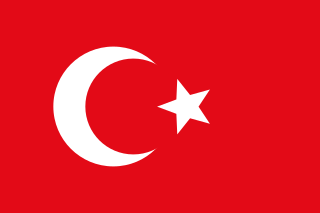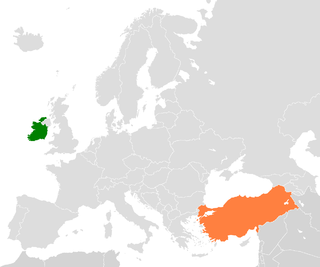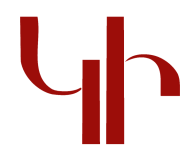Related Research Articles

Cyprus, officially the Republic of Cyprus, is an island country in the eastern Mediterranean Sea, north of the Sinai Peninsula, south of the Anatolian Peninsula, and west of the Levant. It is geographically a part of West Asia, but its cultural ties and geopolitics are overwhelmingly Southeast European. Cyprus is the third-largest and third-most populous island in the Mediterranean. It is east of Greece, north of Egypt, south of Turkey, and west of Lebanon and Syria. Its capital and largest city is Nicosia. The northeast portion of the island is de facto governed by the self-declared Turkish Republic of Northern Cyprus.

The Ottoman Empire, historically and colloquially known as the Turkish Empire, was an imperial realm that spanned much of Southeast Europe, West Asia, and North Africa from the 14th to early 20th centuries; it also controlled parts of southeastern Central Europe between the early 16th and early 18th centuries.

Mehmet Fuat Köprülü, also known as Köprülüzade Mehmed Fuad, was a highly influential Turkish sociologist, turkologist, scholar, Minister of Foreign Affairs and Deputy Prime Minister of the Republic of Turkey. A descendant of the prominent Köprülü family, Fuat Köprülü was a key figure in the intersection of scholarship and politics in early 20th century Turkey.

Relations between Greece and Turkey began in the 1830s following Greece's formation after its declaration of independence from the Ottoman Empire. Modern relations began when Turkey declared its formation in 1923 following the defeat of the Ottoman Empire in World War I.

Oscar Solomon Straus was an American politician and diplomat. He served as United States Secretary of Commerce and Labor under President Theodore Roosevelt from 1906 to 1909, making him the first Jewish United States Cabinet Secretary.
This article gives an overview of liberalism in Turkey. Liberalism was introduced in the Ottoman Empire during the Tanzimat period of reformation.

The Turkish Historical Society is a research society studying the history of Turkey and the Turkish people, founded in 1931 by the initiative of Mustafa Kemal Atatürk, with headquarters in Ankara, Turkey. It has been described as "the Kemalist official producer of nationalist historical narratives". Turkish sociologist Fatma Müge Göçek states that the TTK "failed to carry out independent research of Turkish history, remaining instead the voice of the official ideology".

Ahmet Muhtar Mollaoğlu was a Turkish diplomat and politician, who was the first ambassador of Turkey to the United States.

Turkey, officially the Republic of Türkiye, is a country mainly in Anatolia in West Asia, with a smaller part called East Thrace in Southeast Europe. It borders the Black Sea to the north; Georgia, Armenia, Azerbaijan, and Iran to the east; Iraq, Syria, and the Mediterranean Sea to the south; and the Aegean Sea, Greece, and Bulgaria to the west. Turkey is home to over 85 million people; most are ethnic Turks, while ethnic Kurds are the largest ethnic minority. Officially a secular state, Turkey has a Muslim-majority population. Ankara is Turkey's capital and second-largest city; Istanbul is its largest city, and its economic and financial center, as well as the largest city in Europe. Other major cities include İzmir, Bursa, Antalya, Konya and Adana.

The relations between Turkey and the United Kingdom have a long history. The countries have been at war several times, such as within the First World War. They have also been allied several times, such as in the Crimean War. Both countries currently maintain relations via the British Embassy in Ankara and the Turkish Embassy in London.

Albania–Turkey relations are foreign relations between Albania and Turkey. Albania has an embassy in Ankara and a general consulate in Istanbul. Turkey has an embassy in Tirana. The most widespread religion in Albania is Islam (~59%), also in Turkey (~90%). Both are part of the Organisation of Islamic Cooperation (OIC). In addition, they are full members of the North Atlantic Treaty Organization (NATO) and Union for the Mediterranean (UfM). Turkey and Albania are candidates for accession in the European Union (EU).

Ireland–Turkey relations are the bilateral relations between Ireland and Turkey. Formal relations were established in 1972. Ireland's embassy in Ankara was opened in 1998. Turkey has had an embassy in Dublin since 1973. Both countries are full members of the Council of Europe, the Organisation for Economic Co-operation and Development (OECD), the Organization for Security and Co-operation in Europe (OSCE), the Union for the Mediterranean and the World Trade Organization (WTO). Furthermore, Ireland is a member of the European Union while Turkey is a candidate.

Diplomacy comprises spoken or written communication by representatives of state, intergovernmental, or nongovernmental institutions intended to influence events in the international system.

The Gomidas Institute is an independent academic institution "dedicated to modern Armenian and regional studies." Its activities include research, publications and educational programmes. It publishes documents, monographs, memoirs and other works on modern Armenian history and organizes lectures and conferences. The institute was founded in 1992 at the University of Michigan in Ann Arbor. It is based in London and maintains a United States branch in Cleveland. British-Armenian historian Ara Sarafian serves as its executive director. Since 1998, the institute has been publishing a quarterly journal titled Armenian Forum. The institute is named after Komitas.
Ayşe Sultan was an Ottoman princess, the only daughter of Mihrimah Sultan and Rüstem Pasha. She was granddaughter of Sultan Suleiman the Magnificent (1520–1566) and his consort Hürrem Sultan.

Ahmet Rüstem Bey (1862–1934), born Alfred Bilinski, was an Ottoman diplomat who served as last Ottoman ambassador to the United States in 1914. Despite neither of his parents being ethnically Turkish, he himself was an ardent Turkish nationalist. He was "exceptionally high-strung and outspoken" and had a "propensity to challenge people to duels". Prior to his appointment as ambassador, he had already served twice in the United States capital, both times leaving in a hurry.
The relations between the Ottoman Empire and the United States have a long history having its roots even before the American independence since there was a actually a running trade between these two regions. After the American independence in 1776, the first relations between these two countries started through the contact between the American merchants, statesmen and lastly the Navy and North African countries and with the Ottoman Empire after 1780.

Iran–Spain relations are the bilateral and diplomatic relations between these two countries. Iran has an embassy in Madrid, Spain has an embassy in Tehran.
References
- ↑ Ireland, a Directory and Yearbook. Institute of Public Administration. 1977. p. 24. ISBN 978-0-902173-69-9.
- ↑ Administration Yearbook and Diary. Institute of Public Administration. 1980. p. 22.
- ↑ Lambert's World of Trade, Finance & Economic Development. Lambert Publications, Incorporated. 1984. p. 464.
- ↑ Warner, Jayne L. (2017-11-13). Turkish Nomad: The Intellectual Journey of Talat S Halman. Bloomsbury Publishing. p. 286. ISBN 978-1-83860-981-8.
- ↑ Kutgul, Ahmet Sait. SULTAN'S COMPASSION: Ottoman & Ireland Relations and the Ottoman Aid during the Great Famine in Ireland. Ahmet Sait Kütgül. p. 26.
- ↑ McArt, Pat (May 1999). Irish Almanac and Yearbook of Facts 1999. ArtCam Publishing Limited. p. 417. ISBN 978-0-9529596-3-2.
- ↑ Publications, Europa Europa (2002-11-30). Western Europe 2003. Psychology Press. p. 347. ISBN 978-1-85743-152-0.
- ↑ "President welcomes two new ambassadors". The Irish Times. Retrieved 2023-05-20.
- ↑ Conditions, European Foundation for the Improvement of Living and Working (2008). Annual Report. Office for Official Publications of the European Communities. ISBN 978-92-897-0820-3.
- ↑ Arikan, Harun (2006-01-01). Turkey and the EU: An Awkward Candidate for EU Membership?. Ashgate Publishing, Ltd. ISBN 978-0-7546-4762-1.
- ↑ Ireland, Office of the President of. "Diary President Receives H.e. Mr. Necip Eguez Ambassador Of Turkey And Mrs. Hayru". president.ie (in Irish). Retrieved 2023-05-20.
- ↑ Spearman, Andy. "Drogheda Life | Drogheda delegation strengthens relationship with Turkey over dinner in the embassy". Drogheda Life | Best For Local News & Advertising. Retrieved 2023-05-20.
- ↑ Diplomacy Ireland (2021-06-17). "New Ambassador of Turkey, His Excellency Mr. Mehmet Hakan Olcay Received by President at Áras an Uachtaráin - Diplomacy in Ireland - The European Diplomat" . Retrieved 2023-05-20.